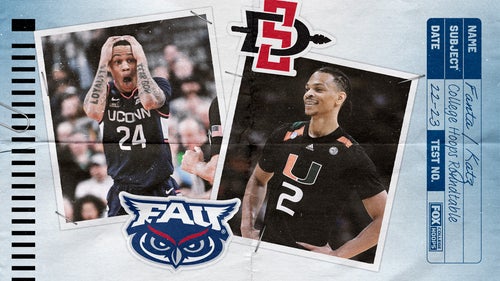
Big East looks like beast, but NCAA tournament to tell tale
OMAHA, Neb. (AP) When the Big East underwent its metamorphosis in 2013 and returned to its basketball-centric roots, the question was whether the conference could recapture the magic of its heyday.
The initial answer wasn't promising. Four of its 10 teams reached the NCAA tournament and none made it past the first weekend.
''I was one of those saying, `This is being called the Big East, but it's not the same league,'' ESPN analyst Jay Bilas said.
Year Two saw six teams make the tournament, but a top-seeded Villanova lost in the round of 32 for the second straight season and only Xavier advanced to a regional semifinal.
How the Big East fares in the NCAA tournament this year will determine how far the conference has come in terms of perception. So far. the season has been more like the Big East brass envisioned when the conference was made over.
Villanova ended the week No. 2 in the RPI and No. 4 in The Associated Press Top 25, and Xavier was No. 4 in the RPI and a program-best No. 5 in the AP poll. No. 16 Providence and No. 18 Butler gave the Big East four teams in the Top 25, and seven were in the top 100 of the RPI.
The Big East's 26-18 record (.591) against opponents from the Atlantic Coast, Big Ten, Big 12, Pac-12 and Southeastern conferences - the so-called power five - was second to the Big 12's 19-12 mark (.612). The Big East's 7-8 record against Top 25 nonconference opponents is best in the nation.
''I'm really excited where the conference is,'' said Jay Wright, who's coached Villanova since 2001. ''I'd like to say this is what we all predicted. I think it's what we all hoped.''
Wright's Wildcats saw their 22-game win streak against Big East opponents end Sunday when they lost to Providence 82-76 in overtime. Xavier, Providence, Creighton and Georgetown all start this week tied for second place, 1 1/2 games behind Villanova.
Last year marked the first time since the conference was founded in 1979 that none of its players were taken in the first round of the NBA draft. There is no shortage of star power this season.
Providence point guard Kris Dunn is considered the best player in the league and is joined by conference scoring leader Ben Bentil. Josh Hart is putting up big numbers for Villanova, which also has Ryan Arcidiacono and Daniel Ochefu.
Xavier's Edmond Sumner and Marquette's Henry Ellenson are among the league's top young players. Butler has a force in Roosevelt Jones and one of the nation's premier shooters in Kellen Dunham. Georgetown again is led by D'Vauntes Smith-Rivera.
Few people represent the glory days of the 1980s Big East more than Chris Mullin, the first-year coach at St. John's. The Big East had nine teams when Mullin, Georgetown's Patrick Ewing and Villanova's Ed Pinckney were the league's biggest stars. It had 15 in 2012-13, the season before it was reconfigured.
''It got to a point where there were so many teams, I didn't know who was in the conference,'' Mullin said.
When the conference was revamped, eight football-playing schools departed and the seven schools whose No. 1 sport is basketball were joined by like-minded Butler, Creighton and Xavier.
''I really like the way it's set up now,'' Mullin said. ''I like the fact that you play each other home and away. I think that will develop real rivalries. I think given time, it'll be what (Big East founder) Dave Gavitt created.''
The Big East probably needs a couple of its teams to make long postseason runs to silence critics who contend the conference has lost elite status. But Georgetown coach John Thompson III, whose father became the league's No. 3 all-time winningest coach in 20 years with the Hoyas, said the Big East doesn't need validation.
''Our identity has never changed,'' Thompson said. ''The Big East is the Big East. What I think is happening is that possibly the rest of the world is realizing, `Oh, wow, they didn't go anywhere.' Without a doubt, we have some of the toughest, some of the best teams in the country. That has always been the case. The rest of the country, who for some reason thought we were going to go away, is now realizing we're not.''





